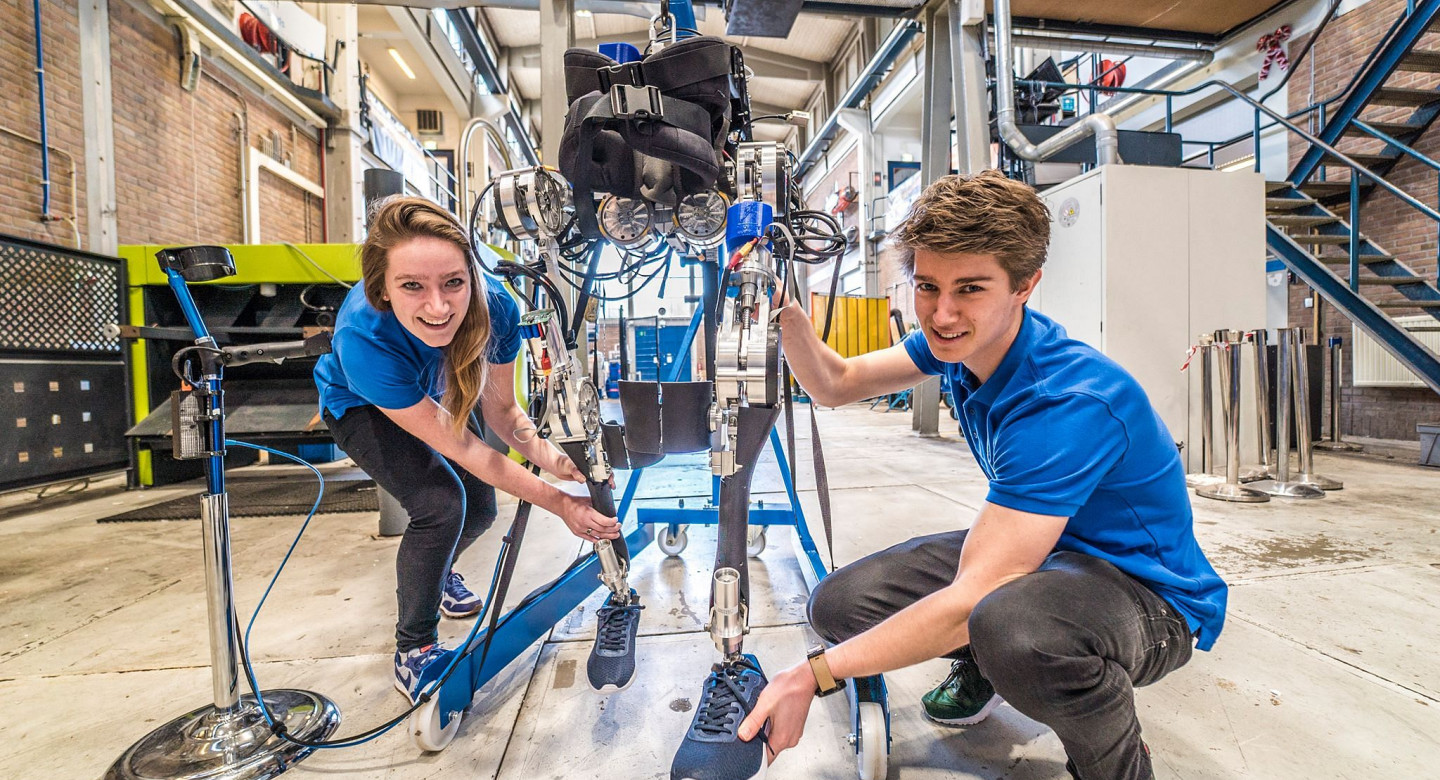

Project March's exoskeleton takes steps to restore mobility
The Project MARCH team is a voluntary group of Delft University of Technology students tackling the issue of mobility limitations with a high-tech solution. They have successfully created an exoskeleton aimed at improving the lives of people affected by mobility issues across the world. It is a project based on partnership with collective expertise being used to solve global challenges together.
Mobility issues and their limitations
Every year, between 250,000 and 500,000 people suffer a spinal cord injury globally, according to the WHO. In the Netherlands, that figure is between 8,000 and 15,000 cases. Such injuries not only reduce a person’s basic mobility, they also affect the degree to which people are included in society and their access to healthy living.
Sports are a way for people to participate in a community and play a proactive role in society. Differently-abled people are often excluded from such activities due to their physical restrictions. Technology can help people with spinal cord injuries to not only walk without a wheelchair, but also engage in sports. In doing so, it improves the lives of people as well as builds a healthier, more inclusive community.
An high-tech solution created by a collaborative ecosystem
Project MARCH has come up with a technological solution that could transform the lives of people with spinal cord injuries. The project was initiated by a student team from Delft University of Technology in the Netherlands, that has been developing a motorised exoskeleton. Their exoskeleton goes beyond enabling people with spinal injuries to walk again, some can even excel at sports as paralympic athletes. Proof of this is their participation at the Cybathlon, a competition that combines the powers of high tech and paralympic athletes in bionic races. In the competition, differently-abled athletes complete obstacle courses using technology ─ a true testament to innovation meeting extraordinary human willpower.
Since last year the project has been located at RoboValley on the university campus. RoboValley strives to create an ecosystem around robotics that attracts the best researchers, multinationals and startups and with that plays an advancing role in the development of the next generation of robotics. In 2018, the team won the Cybathlon Experience in their category powered exoskeleton race. The second official Cybathlon was held in 2020 at different locations around the globe, but due to the corona measures at the time Project MARCH was unable participate. We look forward to seeing them compete at the third Cybathlon in 2024!
Building on partnerships for innovation
Project MARCH’s primary partner is Delft University of Technology, which provides facilities, knowledge, experience, and creates a collaborative space for innovation. Project MARCH works together with various stakeholders around the world, and relies on international collaboration. Although their technology is designed for competition, more importantly it can help individuals improve their daily lives, while creating more inclusive societies. So if you can help create a level-playing field for all sport aficionados, join the team solving global challenges together!